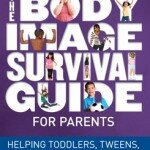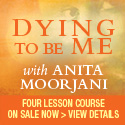
A friend recently sent me a link to an article on Ed Bites regarding the author’s thoughts on the media and eating disorders. The article, to be published in Emirates Woman magazine, is well-written, thought-provoking, and importantly (to me, anyway) written from personal experience.
The author, Carrie Arnold, recounts her own experience as an anorexic in treatment. When handed a sheet of stickers and a stack of magazines as a project for a body image group. The stickers were to be used by the patients to label the images of models and celebrities either with a smiley face promoting a healthy body image or a frowny face pointing the finger of blame at the image (and by default, the media as a whole), for promoting eating disorders.
Says Arnold on her blog, Ed Bites: {the latest tasty tidbits in eating disorder science}:
“I was no stranger to advertising. No one really is. But I knew that most ads were digitally altered and that bodies – real bodies – didn’t look a thing like what was portrayed on the pages of glossy magazines. Weighing roughly half of what I currently do, what I did know was that I was terrified of food and eating. Consuming more than the bare minimum of calories left me feeling dirty, and I felt oddly compelled to purge the extra calories via exercise or other methods.
“Although I couldn’t see it in the mirror, I knew, on some level, that I had long since passed even the most whacked-out culture’s definition of ‘thin’. I didn’t want to look like a model – I’m a geek, not a fashionista. I wasn’t attractive, all sallow-skinned and bony, and I didn’t care. Starving myself was the only way that I could turn down the cacophony in my head. The less I ate and the less I weighed, the quieter my anxious thoughts got. Fashion never crossed my mind.”
And I get that. I’m a self-described life-long recovering bulimic. I was hiding in my parents’ pantry at the age of seven binge eating long before I knew the term and condition was one recognized by medical professionals and at the age of 15, took a news special on a woman treating teens with eating disorders as a “how to”. I was home alone and had been eating mindlessly all evening. At 5’6”, I was curvy but athletically built, wore a size 10, played varsity tennis, and thought I was fat. Random attempts to “become” anorexic had failed horribly and only proved to my warped sense of thinking that I had no self control. Binging, I learned that night, was what I had been doing most of my life, which only served to stuff down and quiet the chaos in my mind.
The answer I had been looking for
Purging was the release I had been looking for. As a first generation Mexican-American, I grew up observing the fine art of Not Acknowledging the Obvious like brides pregnant months before their wedding dates were to take place and family happily ignoring the fact that the premature baby born healthy and adorably chubby. Alcoholics weren’t alcoholics if they didn’t go to meetings and as long as I remembered to not throw up oranges in the shower, I didn’t have to avoid eye contact with my parents after they found the evidence i had forgotten about on the drain.
As Arnold points out in her article, it is very easy to see how the media and the models and celebrities portrayed take the brunt of the blame for “causing” eating disorders. Everything is photo-shopped. Headlines boast the Secrets to a Perfect Body and tell us How to Lose 20 Pounds by Labor Day in issues released just weeks before the actual holiday. And every Hollywood mom seems to either be under contract to drop the baby weight in six weeks, pose in a bikini, and show us how we can do it, too, or become the newest spokesperson for whichever major weight loss program hands them the biggest contract to sign. The message seems loud and clear: Perfection is at the finish line and you better work your ass off to get there before you have the right to feel good about yourself.
This video on YouTube by serves as a perfect example.
But is the media at fault?
Yes.
And No.
As Arnold says, compliments from strangers on how skinny she was may have given her a temporary boost, but they didn’t fuel the need to continue with her disordered behavior. I can relate to that, too. I never once looked at a magazine or a celebrity and thought myself less. My mindset was obviously disordered to begin with. If the media did cause eating disorders, every single person watching the same news special I did would suddenly have jumped off the deep end and embraced anorexia and/or bulimia just like I did.
“So what’s the big deal? Why does it matter what causes eating disorders? For one, it affects who we think are at risk and how quickly they are diagnosed… If we think eating disorders are the preserve of vain women, we are less likely to view them as requiring treatment and more likely to blame the victim. No, we can’t just snap out of it and, although normalising nutrition is crucial, eating a cheeseburger won’t cure us.”— Ann Arnold, Ed Bites.
Changing our focus
No, we can’t snap out of it. Eating a cheeseburger won’t cure an anorexic and learning the definition of self control won’t suddenly help a bulimic figure out how to diet. Similarly, a society hell-bent on proving a market exists for glossy magazine covers of photo-shopped and over-sexed female celebrities and models is doing nothing more than giving the media reason to continue on the current path. If this shit sells, you can bet your ass it’s going to be printed. And while I firmly believe that the media is at least responsible for fueling body image issues in both susceptible children, teens, women and men, I can’t say the media has the power to turn a non-disordered person into an eating disordered mess.
Yes, the media plays a role in how we as a society have come to define beauty in ourselves and others. And as Arnold notes, printing celebrities and their own eating disordered struggles in the “style” section of their publications only trivialize the issue and reinforce the myth that eating disorders are a choice. That, my friends, is complete and utter bullshit.
So who do we blame?
No one, Everyone. Ourselves. Our mothers. The doctor who sent in a nutritionist with a pamphlet on the food pyramid when I was 16 and settled on telling her I couldn’t stick to a diet because I choked on the word “bulimia.”
“The girl thinks she has an eating disorder because she can’t stick to a diet,” I heard her say to the nutritionist in the hallway. “Send her home with this. I’ve got to get back to work.”
Okay, fine. That doctor I actually do blame for choosing to dismiss a cry for help. But is blaming her, or The Biggest Loser, going to help those already suffering? No. It’s not.
Does that mean the media is off the hook?
Not by any means. The media might not be the reason those of us unfortunate enough to have our brains wired in such a way that disordered eating behaviors actually make sense, but there have been plenty of times I have been written about my own good days being ruined by checkout lane headlines telling me I have no right to feel good about myself until I’ve managed to get my ass into the same bikini I wore before I got pregnant almost six years ago.
I’ll give The Powers that Be a pass on my disorder. But I’m holding the media responsible for perpetuating a false ideal of perfection, creating an environment in which our daughters (and sons) are learning to hate their bodies while they should still be playing with their imaginary friends, and reinforcing the belief that self-worth is based on a number on a scale. Eating disordered or not, that line of bullshit is the reason so many of us think happiness isn’t a right we deserve, but one we earn when the scale, the salesgirl, and Other People say we have.
I’m not good with that. I truly believe that until we learn to accept and love ourselves as just the way we are right now, none of us is going to find anything other than a skinner version of ourselves who happens to still hate who we are and what we see in the mirror.
Your job begins now
This is where you take responsibility, my friends.
If you felt good until you picked up that copy of whatever glossy magazine it was that gave you a complex and suddenly had you reaching for a bag of chips out of despair, stop buying, reading, or watching what is obviously a trigger for you. The stories might still sell. The stars might still be selling weight loss programs post-baby because we have turned yesterday’s A-listers into today’s headline just so we can talk about what they’ve gained and how quickly they’ve lost it. Turn your focus inward and focus on changing what you can (how you feel about and perceive your self and body image) and just ignore the rest because it’s not going away anytime soon. We live in a body-conscious time where numbers are given more value than self-perception and worth.
If you need help for an eating disorder or body image issues, seek it out. NOW.
Shut out the noise. Fix the mess inside your head. Then let the rest fall into place.













The media obviously plays a huge role in making us feel inadequate, but from what I have read and heard so far, most eating disorders are not really about trying to look a certain way. They seem to be rather about feeling a certain way (or not feeling something else). About control, and victory. So… maybe the media is guilty here because they do not show us ways to be in control of our lives and victorious without starving ourselves to death… just thinking.